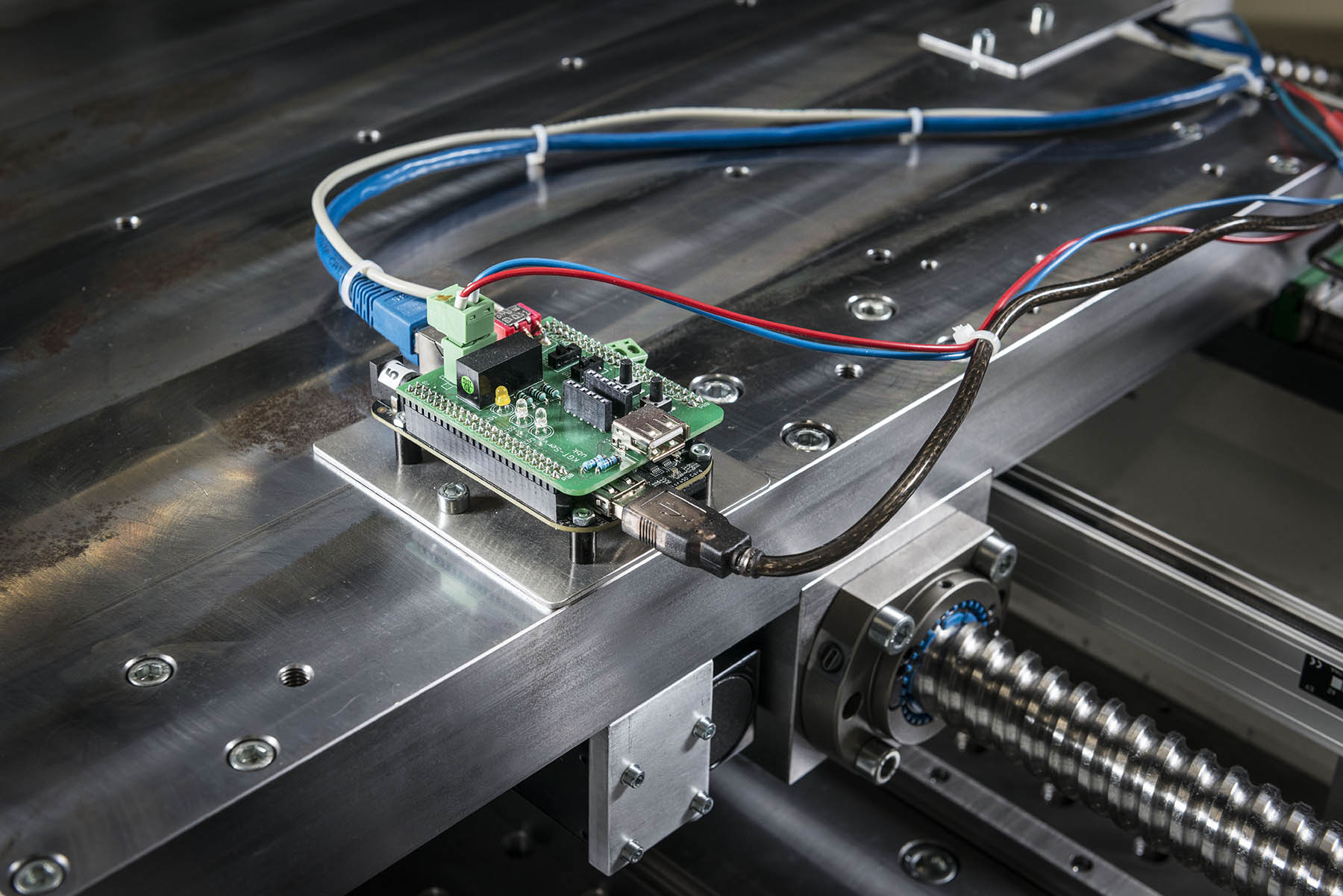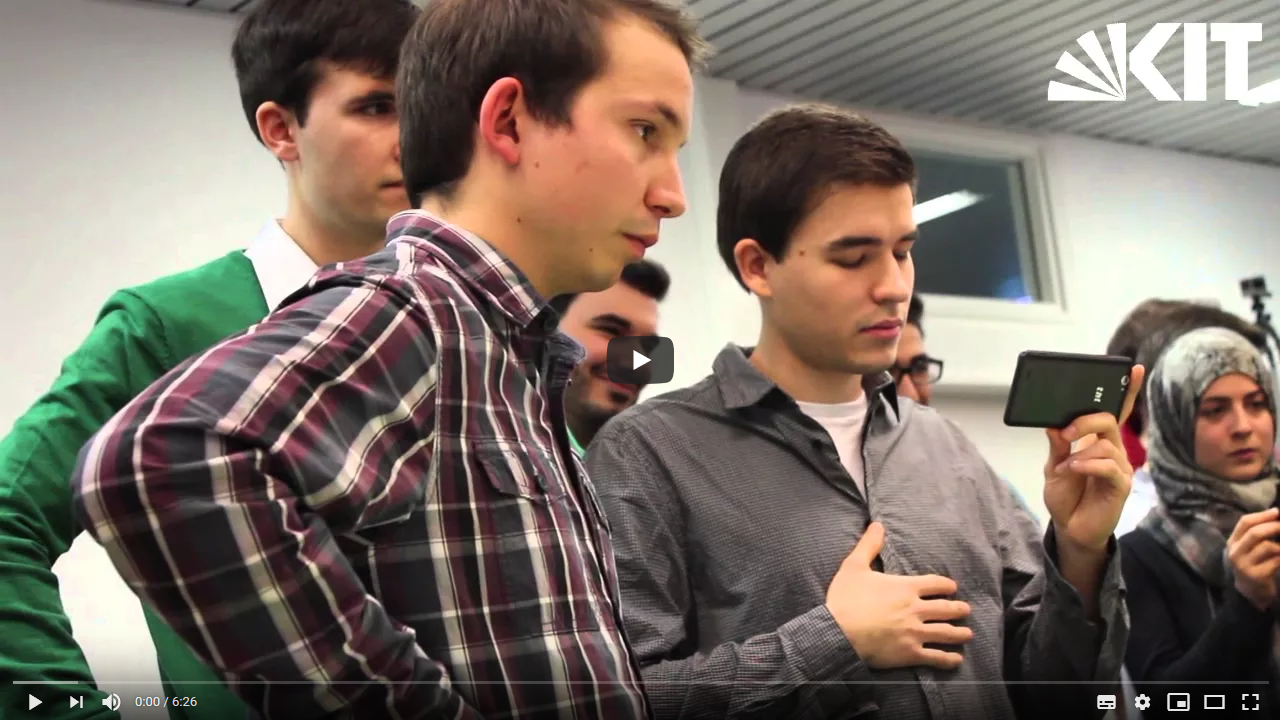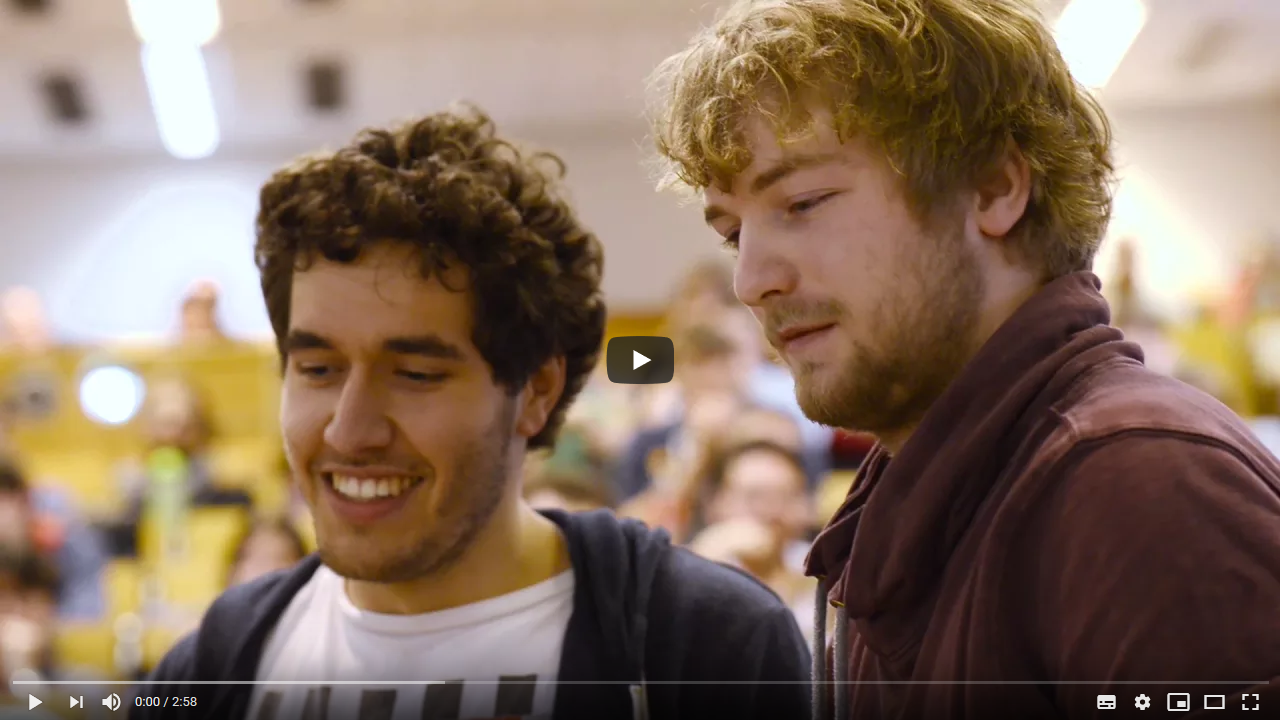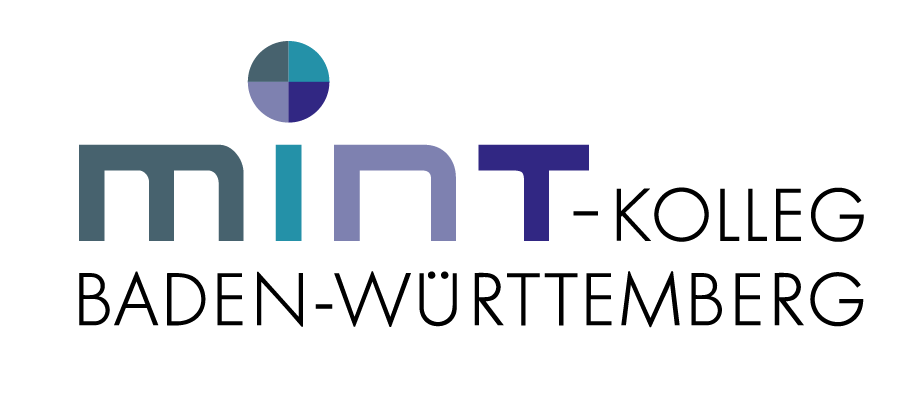Degree: Bachelor of Science (B.Sc.)
Regular program length: 6 semester (full-time program)
Credit points (ECTS): 180 credit points
Language of instruction: German
Higher semester: no
Higher semester: winter and summer term
First semester: July 15
Higher semester: September 15 for winter term, March 15 for summer term
First semester: July 15
Higher semester: July 15 for winter term, January 15 for summer term
Studiengangsbeschreibung
Worum geht's?
Mechatronik verbindet den Maschinenbau mit Elektrotechnik und Informationstechnik. Ein mechatronisches System enthält üblicherweise maschinenbaulich konstruktive Komponenten, elektronische Elemente in Form der Steuerungshardware einschließlich Sensoren und Aktoren, regelungstechnische Bestandteile inklusive Informationsverarbeitung sowie die entsprechende Software. Moderne Produkte, zum Beispiel aus der Automobilindustrie, der Produktionstechnik oder der Medizintechnik, enthalten immer mehr und erweiterte Funktionen, die mechatronische Komponenten erforderlich machen. Automatisierung, Robotik und das „Internet der Dinge“ verlangen zudem weitreichende IT-Kenntnisse. Dementsprechend vermittelt der Bachelorstudiengang „Mechatronik und Informationstechnik“ Grundlagen all dieser Disziplinen und gibt Möglichkeiten zum praktischen Umsetzen des Gelernten in Workshops und Praxisprojekten.
Program structure
During your studies, you have various subjects, which consist of one or more modules. A module deals with a specific topic and consists of one or more courses. In the module handbook for your degree program, you will find a description of the modules and their subject assignment as well as a study plan. This gives you an orientation as to which courses you should attend in which semester in order to complete your studies within the standard period of study. It takes into account a balanced distribution of courses over the individual semesters. It also ensures that you are first taught the important basics before moving on to more advanced topics. Your individual course of study may differ from this.
Nachdem dir in den ersten Semestern vorwiegend wichtige Grundlagen vermittelt werden, hast du in den letzten Semestern die Möglichkeit dich in einem Fachgebiet deiner Wahl zu vertiefen. Außerdem absolvierst du ein Berufspraktikum und fertigst eine Bachelorarbeit an. Dein Studiengang besteht aus den folgenden Fächern:
- Ingenieurwissenschaftliche Grundlagen (111 LP): In diesem Fach erwarten dich die für dein Fachgebiet wichtigen Grundlagenmodule wie Elektrische Energietechnik, Elektromagnetische Felder sowie Grundlagen der Digitaltechnik, Höhere Mathematik, Maschinenkonstruktionslehre, Technische Mechanik und vieles mehr
- Vertiefung in der Mechatronik (35 LP): In diesem Abschnitt deines Mechatronik-Studiums kannst du entsprechend deiner Interessen Module in Richtung Elektrotechnik und Informationstechnik oder Maschinenbau oder in geringerem Umfang auch in Richtung Informatik oder Wirtschaftswissenschaften wählen
- Überfachliche Qualifikationen (4 LP): Hiermit rundest du dein Qualifikationsprofil nach deinen Wünschen ab. Seien es Sprachkurse, Präsentationstechniken oder ein Kurs zur Work-Life-Balance. Das KIT hat dir Vieles zu bieten, du entscheidest
Berufspraktikum
Praktische Erfahrungen sollen nicht nur innerhalb, sondern auch außerhalb des KIT gemacht werden. Ein Berufspraktikum von mindestens 13 Wochen Dauer ist deshalb Bestandteil des Studienplans. Dafür suchst du dir eine geeignete Praxisstelle. Der Career Service des KIT kann dabei behilflich sein. Die möglichen Inhalte findest du in den Praktikumsrichtlinien für den Studiengang. Dem Praktikum sind 15 LP zugeordnet.
Auslandsaufenthalte
Das KIT bietet vielfältige Optionen für Auslandsaufenthalte, von einzelnen Lehrveranstaltungen an der Partneruni Strasbourg bis hin zum Auslandsjahr in Übersee. Insbesondere wenn du an einem längeren Auslandsaufenthalt interessiert bist, ist es ratsam, dich frühzeitig beim International Students Office zu informieren. Mechatronik-Studierende können an einem Doppelabschluss-Programm teilnehmen, entweder mit der BME Budapest oder der TU Sofia. Dazu informiert ISIM.
Bachelorarbeit
Am Ende deines Bachelorstudiums fertigst du deine Bachelorarbeit im Umfang von 15 LP an, eine wissenschaftliche Arbeit, die es dir ermöglicht, dein erlangtes Wissen und deine Fähigkeiten anzuwenden und zu vertiefen. Normalerweise behandelt sie ein spezifisches Thema in deinem Studienfach und erfordert eigenständige Forschung, Analyse und das Verfassen einer schriftlichen Ausarbeitung. Die maximale Bearbeitungsdauer der Bachelorarbeit beträgt sechs Monate.
Weitere Informationen
Außer dem Modulhandbuch ist unsere Studiengangbroschüre eine nützliche Informationsquelle. Sie behandelt auch Themen wie Bewerbungsverfahren, Studienvorbereitung und Berufsperspektiven.
Qualification profile of the graduate
Scientific basis and method skills in the field of Mechatronics and Information Technology will be acquired during the Bachelor's program. The aim is, to pursue a Master's program successfully or use the acquired competencies in professional environment.
Berufsperspektiven
Nach dem Bachelor kannst du dein Wissen im Masterstudium vertiefen oder in der Industrie anwenden. Mit einem Abschluss in Mechatronik und Informationstechnik steht dir eine Vielzahl von Branchen offen – Energietechnik, Automatisierung, Medizintechnik, Mikrosystemtechnik, Fahrzeugtechnik und vieles mehr. Die Tätigkeiten reichen von der Entwicklung und Optimierung von Produkten oder der Einrichtung und Wartung von Anlagen bis zu Vertrieb und Management. Da mittlerweile Geräte und Fahrzeuge aus einer Vielzahl mechatronischer Systeme bestehen, sind Personen mit diesem Abschluss sehr gefragt.
Besonderheiten des Studiengangs
Besonderheiten von Mechatronik und Informationstechnik B.Sc. am KIT
- Praktische Bestandteile von Anfang an
- Ganzheitlicher Lehransatz durch Projektarbeit
- Neues Anwendungszentrum Mechatronik für Praxisprojekte der Studierenden
- Großer interdisziplinärer Wahlbereich
- Zahlreiche Auslandskooperationen (Eucor, ERASMUS+, GEARE etc.)
- Doppelabschlussprogramme mit TU Sofia und BME Budapest
What KIT has to offer
- central campus close to the city forest and right next to the city center
- orientation week before the start of lectures
- 24-hour library offering single and group working places
- wide range of inexpensive catering options (dining hall, cafeteria, Koeri and Pizzawerk)
- numerous interdisciplinary offers for personal and professional development, e.g. Lernlabor, Schreiblabor and Perspektivenlabor
- study abroad, e.g. via Erasmus
- excellent university sports facilities with a large selection of sports
- comprehensive cultural offerings with university orchestras, choirs and theater groups
- extensive support for career entry and self-employment
- Lernraum app
- internationally oriented degree programs and diverse exchange programs
- modern laboratories and practical teaching methods
- diverse student initiatives, clubs and opportunities to actively participate in campus life
- stay in touch after graduation via the alumni network
Zugangsvoraussetzungen und Sprachnachweise
Higher education entrance qualification (HZB)
Germans and persons of equal status to Germans (i.e. EU/EEA nationals and non-EU/EEA nationals with a German higher education entrance qualification) are entitled to study at KIT if they have one of the following qualifications:
- General higher education entrance qualification (Abitur)
- (relevant) subject-restricted higher education entrance qualification (not Fachhochschulreife)
- Delta examination of the University of Mannheim (for holders of a Fachhochschulreife)
- recognized advanced vocational training (e.g. master craftsperson) or vocational training, professional experience and aptitude test for those with professional qualifications
For further options, see §58 of the "Landeshochschulgesetz" (State Higher Education Act).
Please note: German nationals with a foreign school-leaving qualification must have the relevant "Regierungspräsidium" (regional authority) certify that their qualification is equivalent to the German Abitur.
For non-EU/EEA nationals with a foreign school-leaving certificate (hereinafter also referred to simply as non-EU/EEA nationals), the school-leaving certificate from some countries is recognized as a direct university entrance qualification in Germany. In many cases, however, in addition to the school-leaving certificate, a university entrance examination and/or a successful year of study in the home country and/or the "Feststellungsprüfung" must be proven with valid documents in order to be allowed to study a bachelor's degree in Germany. You can find the country-specific regulations in the DAAD admissions database or on the Anabin website (in German only) of the "Zentralstelle für ausländisches Bildungswesen" (Central Office for Foreign Education). Further information is available from the International Students Office.
Sprachvoraussetzungen und -nachweise
Für den Bachelorstudiengang Mechatronik und Informationstechnik benötigst du ausreichende Kenntnisse der deutschen Sprache. Deine Deutschkenntnisse müssen mindestens dem Niveau C1 des Gemeinsamen Europäischen Referenzrahmens für Sprachen (GER) entsprechen.
Proof of sufficient German language skills
Your higher education entrance qualification (HZB) is sufficient proof of your German language skills,
-
if you obtained it at a German-speaking school in Germany or abroad,
-
if you are a graduate of a bilingual secondary school in Germany or abroad and have passed a bilingual German examination, such as the AbiBac or the Gemischtsprachiges International Baccalaureat (GIB) or
-
if you graduated from a foreign school, but there is another official agreement with the respective country on the recognition of your school-leaving certificate or language certificate as proof of language proficiency for university studies in Germany.
A complete list of foreign school-leaving qualifications and language certificates that are recognized as proof of sufficient German language skills can be found on the website of the Kultusministerkonferenz (Standing Conference of the Ministers of Education and Cultural Affairs of the Länder in the Federal Republic of Germany).
If you did not obtain your higher education entrance qualification at a German-speaking institution, you must provide a separate language certificate - regardless of your nationality. Only the following are accepted
- the passed „Prüfungsteil Deutsch“ of the Feststellungsprüfung,
- the passed DSH with the overall result DSH-2,
- the passed TestDaF level 4 in all four parts of the exam (reading comprehension, listening comprehension, written expression, oral expression) or
- a comparable, recognized certificate of sufficient German language skills.
To find out which other recognized certificates can be accepted as comparable by KIT, please contact
- as a German or German-equivalent applicant: Studierendenservice
- as an applicant with non-EU citizenship: International Students Office
Please note:
Language certificates are extremely important application documents that can prevent your enrollment if you do not submit them on time. Therefore, check early on in the application process whether you have the necessary language certificates for your degree program and, if necessary, plan to take one of the language tests mentioned above. The deadline by which you must submit language certificates corresponds to the enrollment deadline stated in your admission offer. In justified cases, you can apply for an extension of this deadline. The extension can be granted until the start of the lecture period at the latest.
Additional necessary requirements for enrollment
For Germans and those with German equivalent status, an additional necessary requirement for enrollment is proof of participation in a study orientation test (e.g. www.was-studiere-ich.de) or a study orientation consultation in accordance with §7 of the "Landeshochschulgesetz" (State Higher Education Act), e.g. by the Student Advisory Service (ZSB) of KIT. Non-EU/EEA nationals do not have to provide this proof.
Auswahlverfahren
Auswahlverfahren für deutsche und Deutschen gleichgestellte Bewerberinnen und Bewerber
Es stehen 100 Studienplätze zur Verfügung. Nach Abzug der Vorabquoten für Härtefälle (5%), Ausländerinnen und Ausländer (10%) und Zweitstudienbewerberinnen und -bewerber (2%), werden 10% der Studienplätze an die Bewerberinnen und Bewerber mit der längsten Wartezeit vergeben. 90% der Studienplätze werden über ein Auswahlverfahren verteilt.
Das Auswahlverfahren basiert auf den schulischen Leistungen und sonstiger Leistungen der Bewerberinnen und Bewerber. Aufgrund dieser Leistungen wird eine Rangfolge nach Punkten gebildet.
Berechnung der Auswahlpunkte:
- Summe der Punkte im Abiturzeugnis durch 56 bzw. 60 geteilt
max. 15 Punkte
- Schulische Leistungen: Durchschnitt aller Halbjahrespunkte (max. 15) der letzten zwei Oberstufenjahre in den Fächern
- Deutsch
- Mathematik
- bestbenotete, fortgeführte, moderne Fremdsprache
- bestbenotetes, fortgeführtes naturwissenschaftlich-technisches Fach (außer Biologie)
max. 15 Punkte - sonstige Leistungen:
- Abgeschlossene Berufsausbildung in einem technischen Ausbildungsberuf sowie einschlägige Berufsausübung (auch ohne Ausbildung)
- Praktische, einschlägige Tätigkeiten (zum Beispiel Praktika)
- Außerschulische Leistungen wie Preise und Auszeichnungen, besonderes Engagement
max. 3 Punkte
Wert 1 + Wert 2 + Wert 3 = insgesamt max. 33 Punkte
Die Ergebnisse der Auswahlverfahren der vergangenen Jahre findest du in der Broschüre Zulassungsergebnisse.
Detailierte Informationen zum Auswahlverfahren findest du in der Satzung für das hochschuleigene Auswahlverfahren des Studiengangs.
Selection procedure for applicants from non-EU/EEA countries
Please note that a different selection procedure applies for third-country nationals (non-EU/EEA). This selection procedure is based on the higher education entrance qualification. The higher education entrance qualification can be based on academic achievements in school, any previous academic achievements at universities and/or the "Feststellungsprüfung".
Application portal
Application for the 1st semester
Application for a higher semester
Study preparation
Prepatory courses at KIT: The MINT-Kolleg offers prospective and first-year students support in natural science and technical subjects (STEM).
In addition, the KIT-Departments offer special preliminary courses before the start of the semester program during the "O-Phase" (orientation week).
Support during your start at KIT
The KIT offers support for all first-year students in order to have a successful start of their studies. Numerous orientation events and mentoring programs at the KIT-Departments help students to make friends, orientate themselves and find support where needed. The central online portalstudienstart.kit.edu is a first guide to all important offers, brings together all relevant information and contains helpful hints for a successful start of your studies:
- advisory centers
- mentoring programs
- info sessions
- workshops
- extensive online information
Contacts
Student advisor
Student advisory services (ZSB)


Karlsruher Institut für Technologie (KIT)
Zentrale Studienberatung (ZSB)
Engelbert-Arnold-Str. 2
76131 Karlsruhe
Karlsruher Institut für Technologie (KIT)
Studierendenservice
Kaiserstr. 12
76131 Karlsruhe
First point of contact for international applicants
Karlsruher Institut für Technologie (KIT)
International Students Office (IStO)
Adenauerring 2
76131 Karlsruhe
Printed matter
Module handbook
Statutes and regulations
| Titel | Stand | Download |
|---|---|---|
| 2021 KIT 040 Satzung zur Änderung der Satzung für das hochschuleigene Auswahlverfahren im Bachelorstudiengang Mechatronik und Informationstechnik am Karlsruher Institut für Technologie (KIT) | 08.07.2021, veröffentlicht 12.07.2021 | |
| 2012 KIT 031 Satzung für das hochschuleigene Auswahlverfahren im Bachelorstudiengang Mechatronik und Informationstechnik am Karlsruher Institut für Technologie (KIT) | 11.06.2012, veröffentlicht 15.06.2012 |
| Titel | Stand | Download |
|---|---|---|
| 2025 KIT 012 Satzung zur Änderung der Studien- und Prüfungsordnungen des Karlsruher Institut für Technologie (KIT) aufgrund der Neugestaltung der Abschlussdokumente | 26.02.2025, veröffentlicht 27.02.2025 | |
| 2023 KIT 058 Studien- und Prüfungsordnung des Karlsruher Instituts für Technologie (KIT) für den Bachelorstudiengang Mechatronik und Informationstechnik | 24.07.2023, veröffentlicht 24.07.2023 |
Teaching calendar
WT 2024/25
10-21-2024 to 02-15-2025
ST 2025
04-22-2025 to 08-02-2025
WT 2025/26
10-27-2025 to 02-21-2026
ST 2026
04-20-2026 to 08-01-2026
WT 2026/27
10-26-2026 to 02-20-2027
ST 2027
04-19-2027 to 07-31-2027
WT 2027/28
10-25-2027 to 02-19-2028
ST 2028
04-18-2028 to 07-29-2028
Lectures will not take place:
- From 12-24 to 01-06
- the week after Pentecost
- on all public holidays in the state of Baden-Wuerttemberg











